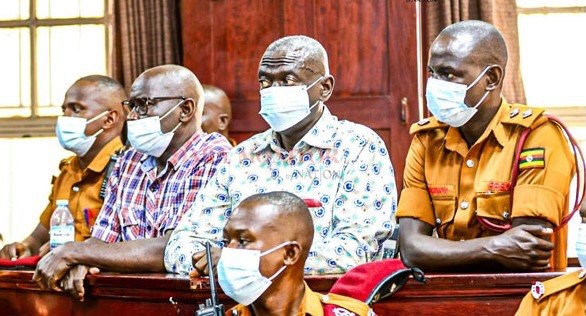By David Mwanje
The Uganda Prisons Service (UPS) has robustly refuted allegations of inhumane conditions at Luzira Upper Maximum Security Prison, labeling claims made by opposition leaders and the family of Dr. Kizza Besigye as “false and baseless.” In a statement issued today, UPS spokesperson Senior Commissioner Frank Baine Mayanja dismissed accusations that the facility is infested with bed bugs used as a torture tool and that Besigye is held in contradictory conditions of isolation while sharing a ward with 15 others.
“The claim that Luzira is infested with bed bugs as a torture mechanism is grossly false,” Mayanja stated. “The assertion that Dr. Besigye is in permanent isolation yet sharing a ward is contradictory and misleading. We urge the public to disregard this misinformation and disinformation.” The UPS reaffirmed its commitment to managing prisoners in accordance with Ugandan laws and the Nelson Mandela Rules, which set international standards for the treatment of detainees.
The allegations come amid heightened scrutiny of Besigye’s detention, following his arrest in November 2024 in Nairobi, Kenya, and subsequent transfer to Uganda. Besigye, a long-time critic of President Yoweri Museveni, faces charges of treachery and illegal possession of firearms in a military court, which he denies. His detention has sparked protests from opposition figures, including claims of political persecution. However, the government maintains that Besigye’s case is being handled legally and transparently.
In a recent presidential address, President Museveni defended the use of military courts for cases involving firearms, emphasizing their role in maintaining national stability. Speaking on June 17, 2025, Museveni described a Supreme Court ruling that declared military trials of civilians unconstitutional as “the wrong decision,” asserting that “the country is not governed by judges but by the people.” He argued that military courts are essential for swiftly addressing “gun-wielding criminals and terrorists,” unlike civilian courts, which he claimed are overburdened and slow. “The military courts helped us discipline Karamoja. We cannot and will not abandon this useful instrument for stability,” Museveni said, referencing the courts’ role in curbing violence in the Karamoja region.
The President’s remarks align with the government’s broader stance on security and justice, as it seeks to balance legal processes with national security imperatives. On June 17, Museveni signed into law an amendment allowing civilians to be tried in military courts under specific circumstances, such as possession of military equipment. This move, passed by Parliament despite an opposition boycott, underscores the government’s commitment to maintaining order ahead of the 2026 general elections.
The UPS has also highlighted improvements at Luzira Prison, countering claims of inhumane conditions. A January 2025 report by the Parliamentary Committee on Human Rights noted upgrades, including running water, waterborne toilets, and the abolition of the bucket system. Besigye himself acknowledged these improvements during a committee visit, according to the report, though he raised concerns about his personal safety. The UPS dismissed these fears, stating that Besigye receives daily medical checkups, consults his personal doctor, and prepares his own meals from authorized suppliers as a security precaution.
Commissioner Mayanja emphasized that Besigye’s treatment adheres to legal and international standards, including access to medical care and authorized food suppliers. “The Uganda Prisons Service is a professional agency that upholds the rights of all detainees,” he said. “We are committed to ensuring their safety and well-being while respecting the rule of law.”
The government has called on citizens to trust its institutions and reject opposition narratives aimed at destabilizing the country. Information Minister Chris Baryomunsi, who visited Besigye in February 2025, assured the public that the government was fast-tracking the transfer of his case to a civilian court, following the Supreme Court’s January 31 ruling. However, Museveni’s recent statements suggest that military courts will remain a cornerstone of Uganda’s security framework.
As Uganda prepares for the 2026 elections, the government’s handling of high-profile cases like Besigye’s will continue to draw attention. For now, the UPS stands firm, dismissing allegations of mistreatment as politically motivated attempts to undermine its credibility and the nation’s stability.























